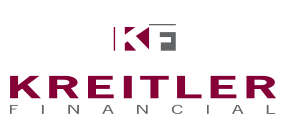Retirement planning is a critical aspect of financial security, especially for high-net-worth individuals. While retirement may seem way off in the distance in your 30s, it’s important to start early to ensure a comfortable retirement. But, what if you find yourself in your 40s or 50s with less time to prepare?
In this article, we will explore best practices and strategies for retirement planning at various stages of life, whether you are in your 30s, 40s, or 50s.
Setting Retirement Goals
Retirement planning should begin with a clear understanding of your goals. High-net-worth individuals often have unique aspirations for retirement, such as travel, philanthropy, or starting a new business. Start by asking yourself:
- What do I want to achieve in retirement? Define your retirement goals, whether it’s maintaining your current lifestyle, pursuing new passions, or giving back to the community.
- When do I want to retire? Set a target retirement age, considering your financial situation and lifestyle preferences.
- How much will I need? Calculate your retirement expenses, factoring in healthcare, inflation, and any desired luxuries.
The Early Bird Advantage: Retirement Planning in Your 30s
In your 30s, time is on your side. By contributing to retirement accounts early, your investments will grow substantially over a longer time.
Here’s how:
- Embrace employer-sponsored plans: Contribute to your 401(k) or equivalent employer plan. Aim to max out contributions and take advantage of employer matches.
- Consider IRAs: Invest in Individual Retirement Accounts (IRAs) for additional tax advantages. A Roth IRA, in particular, offers tax-free withdrawals in retirement.
- Diversify your investments: While you have the luxury of time, take advantage of the power of compounding. Diversify your investments across various asset classes, such as stocks, bonds, and real estate. This diversification will help you weather market fluctuations and build wealth over the long term.
Catching Up: Retirement Planning in Your 40s
In your 40s, retirement planning may compete with other financial goals, like paying for your children’s education or mortgages. Finding a balance is crucial:
- Assess your progress: Review your retirement portfolio and adjust your contributions to stay on track.
- Manage debt: Prioritize paying off high-interest debts to free up funds for retirement savings.
- Reevaluate your risk tolerance: As retirement gets closer, it’s crucial to reevaluate your risk tolerance. Shift your investments towards a more conservative mix to protect your assets from market volatility. Consult with a financial advisor to create a balanced portfolio.
The Final Countdown: Retirement Planning in Your 50s
In your 50s, time becomes a limited resource, but there are ways to catch up on retirement savings. Focus on reducing debt and cutting unnecessary expenses. The less financial baggage you carry into retirement, the better.
- Leverage catch-up contributions: If you’re 50 or older, you can contribute more to your retirement accounts. For example, in 2024, individuals over 50 can contribute an additional $7,500 to their 401(k) on top of the regular limit.
- Optimize Social Security: Consider the best time to start claiming Social Security benefits. Delaying can increase your monthly payouts.
- Healthcare considerations: Research supplemental healthcare options above and beyond Medicare, as healthcare costs tend to rise with age.
Diversify Income Streams
High-net-worth individuals can also explore diversified income streams to maintain financial stability in retirement, regardless of economic conditions:
- Invest in Real Estate: Consider real estate investments for rental income and potential appreciation.
- Start a Side Business: If you have entrepreneurial aspirations, explore starting a side business to generate additional income.
- Annuities and Dividends: Invest in assets that provide regular income, such as annuities or dividend-paying stocks.
Tax Efficiency
Minimizing tax liabilities in retirement is essential:
- Roth Conversions: Convert traditional retirement account funds into Roth IRAs to enjoy tax-free withdrawals.
- Tax-Efficient Withdrawals: Develop a strategy for withdrawing funds in retirement to minimize tax liability.
- Estate Planning: Consider creating a comprehensive estate plan to manage taxes and ensure a smooth transfer of wealth.
Longevity Planning
With advances in healthcare, it’s essential to plan for a longer retirement:
- Long-Term Care Insurance: Explore long-term care insurance options to protect your assets in case of health-related expenses.
- Emergency Fund: Maintain an emergency fund to cover unexpected medical or other expenses.
Conclusion
In conclusion, retirement planning is a multifaceted endeavor that evolves with age and circumstances.
But the most important thing you can do, no matter how old you are, is to get advice from a qualified financial counselor. They can assist you in maximizing your money, navigating the challenges of saving for retirement, and guaranteeing that you have the retirement of your dreams.
Remember, the key to a successful retirement is starting early, staying informed, and adapting your strategy as your financial situation evolves. By following these best practices and strategies, you can set yourself on a path to financial freedom in your 30s, 40s, and 50s, ensuring a secure and enjoyable retirement.
Work with us
Our team of trusted financial advisors is here to support you in planning for a secure and fulfilling retirement. At Kreitler Financial, we work with clients to help them achieve their financial and retirement goals. With a focus on long-term relationships, we are proud to guide clients who have achieved a remarkable level of success.
Don’t miss the chance to schedule a consultation with us and begin your journey towards a prosperous future today!

